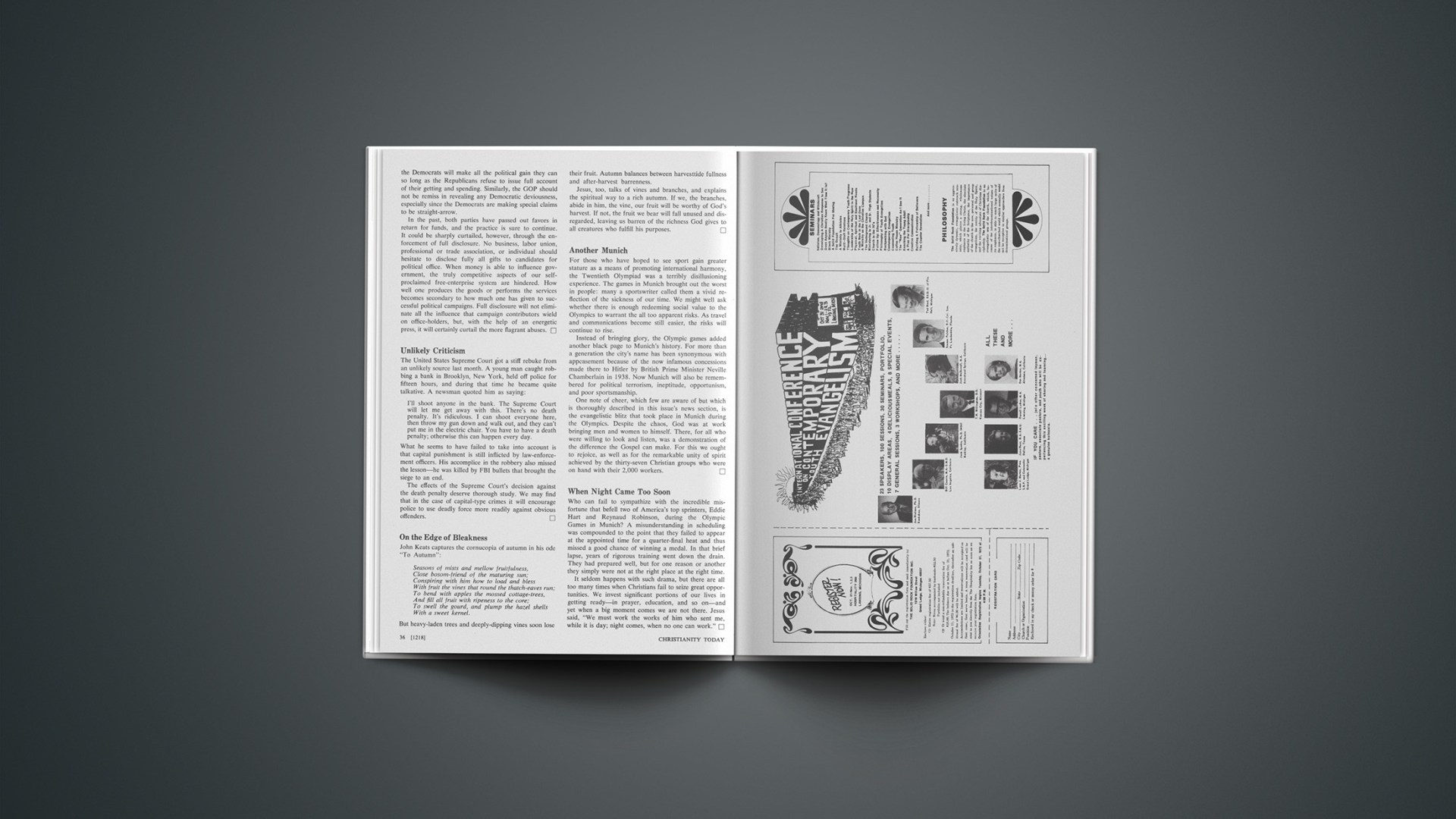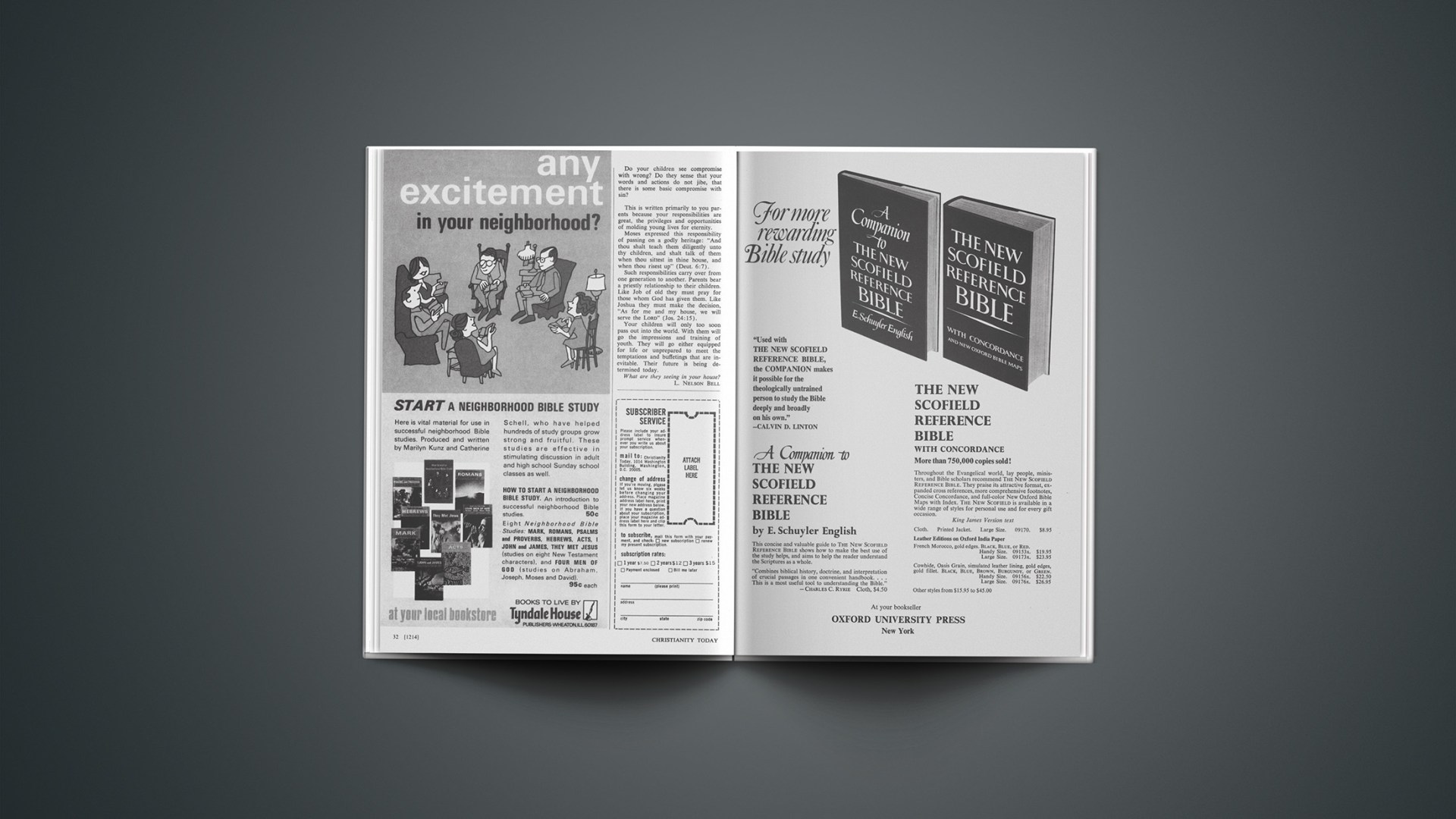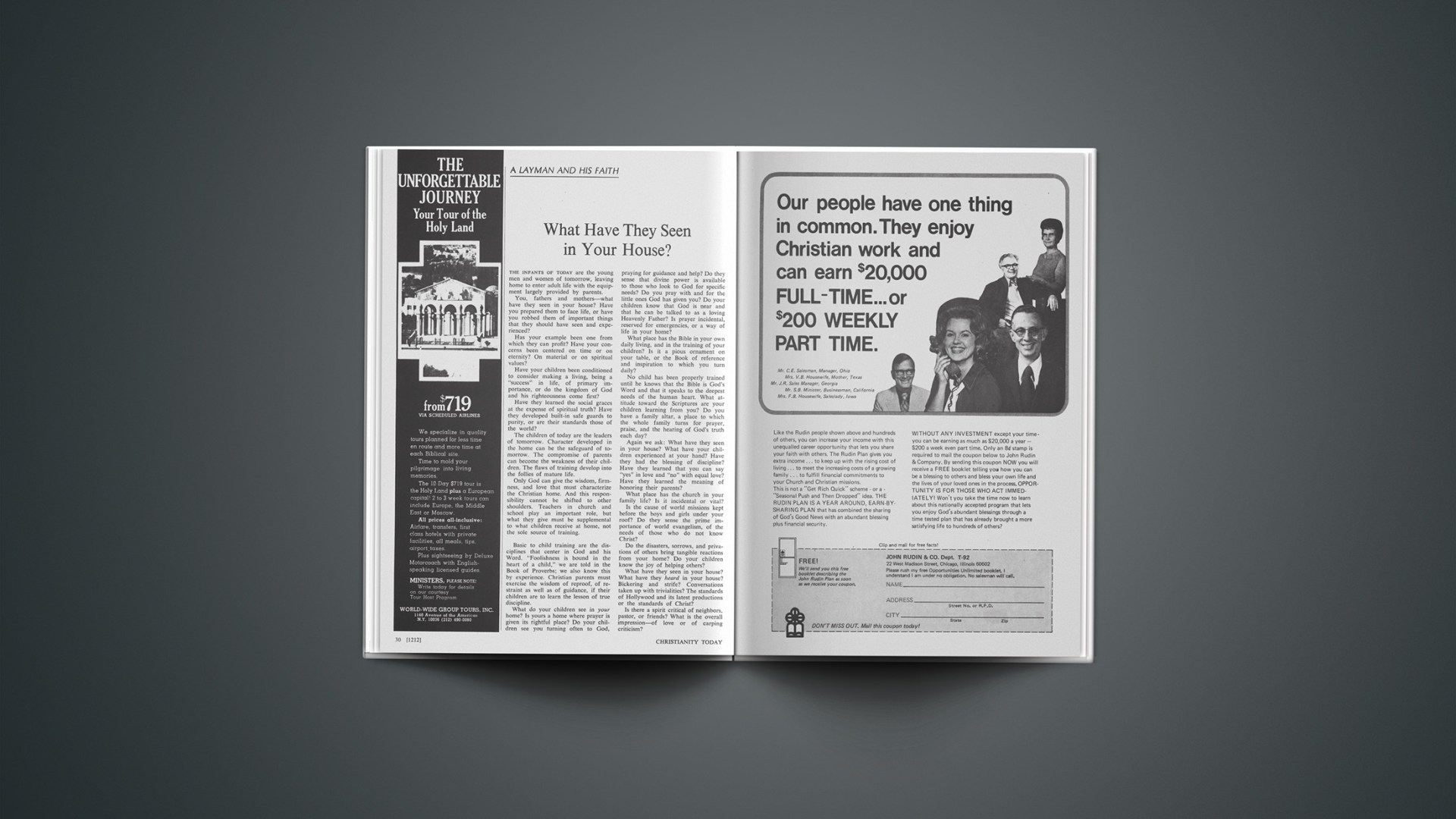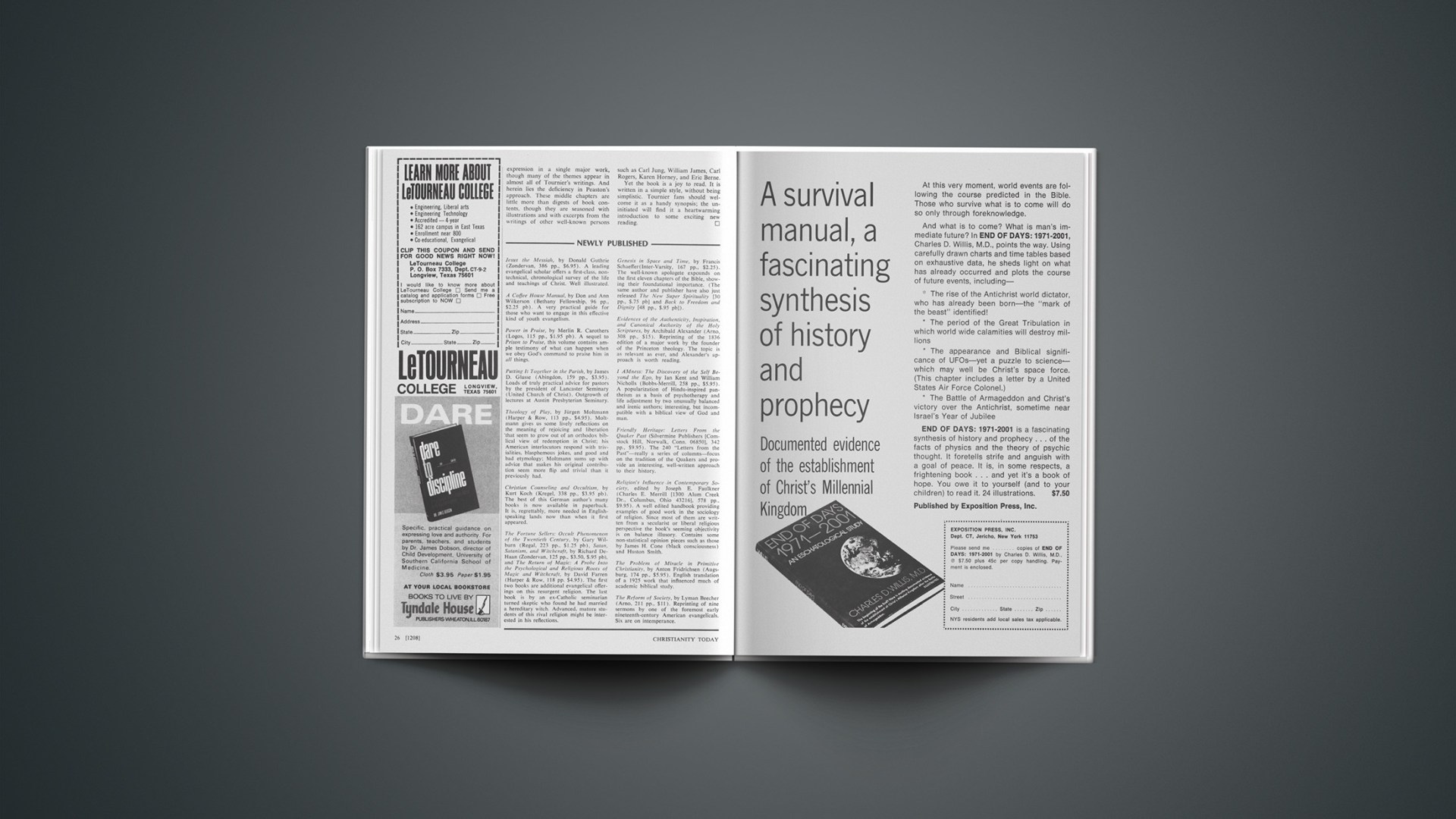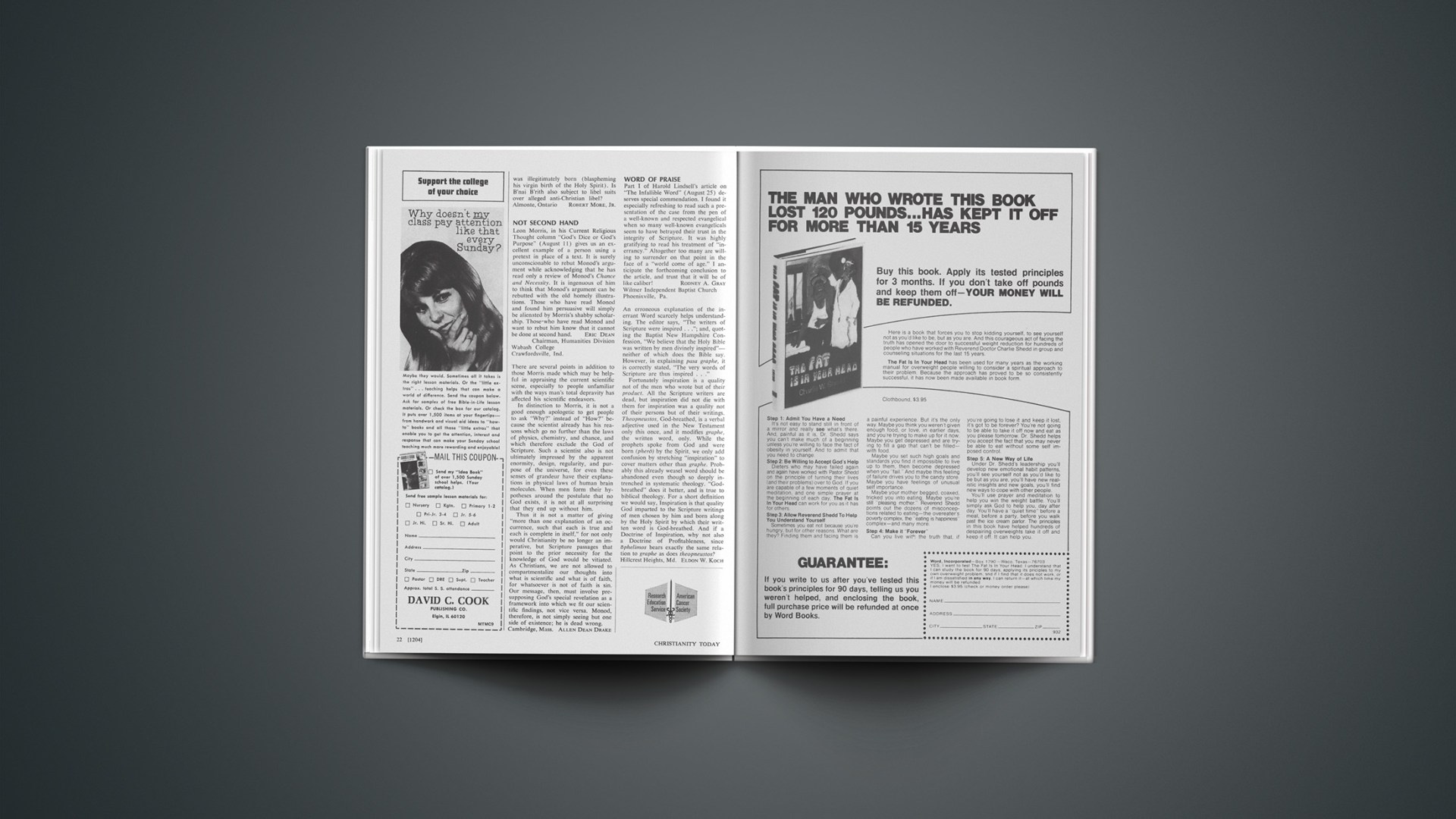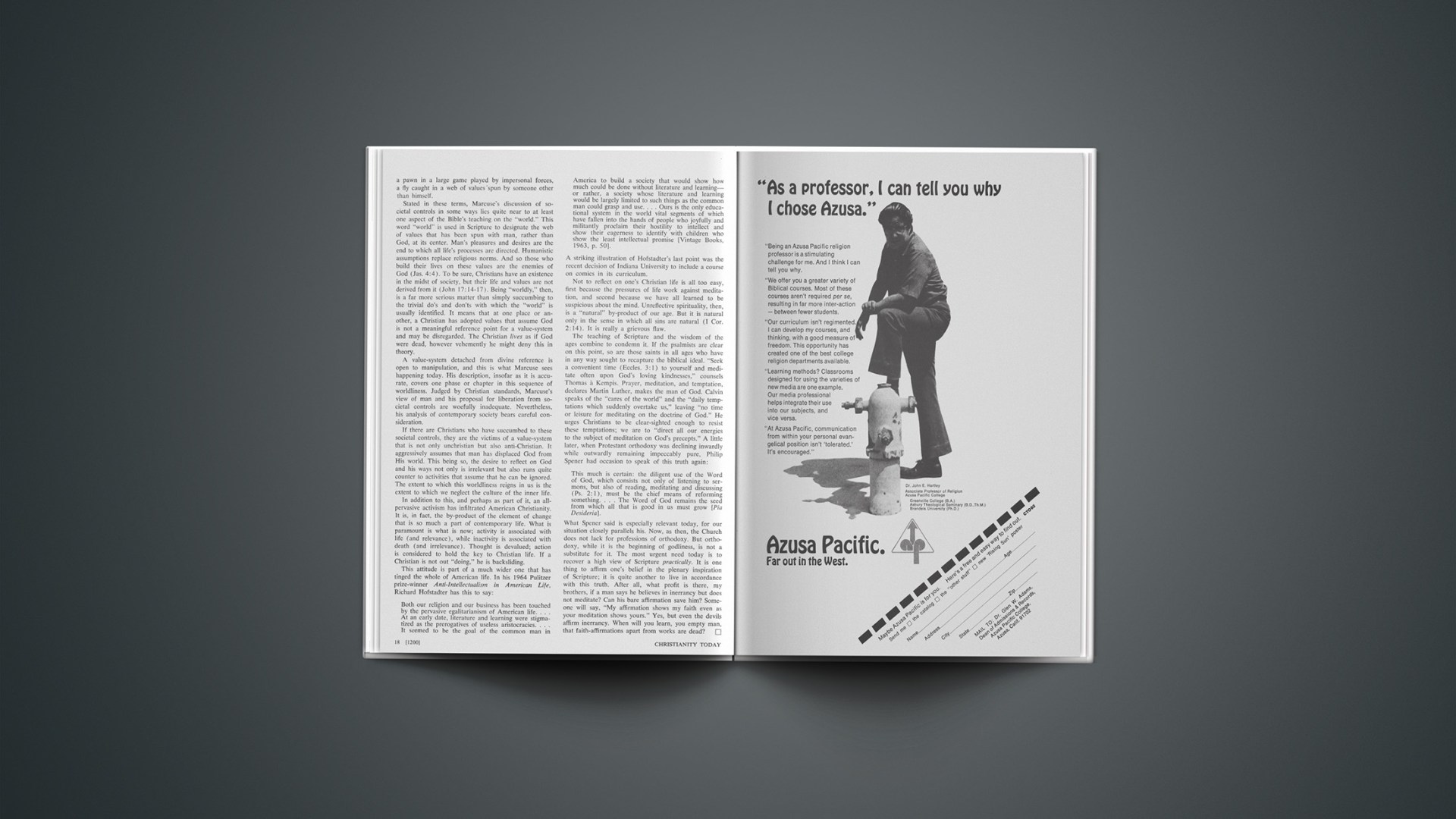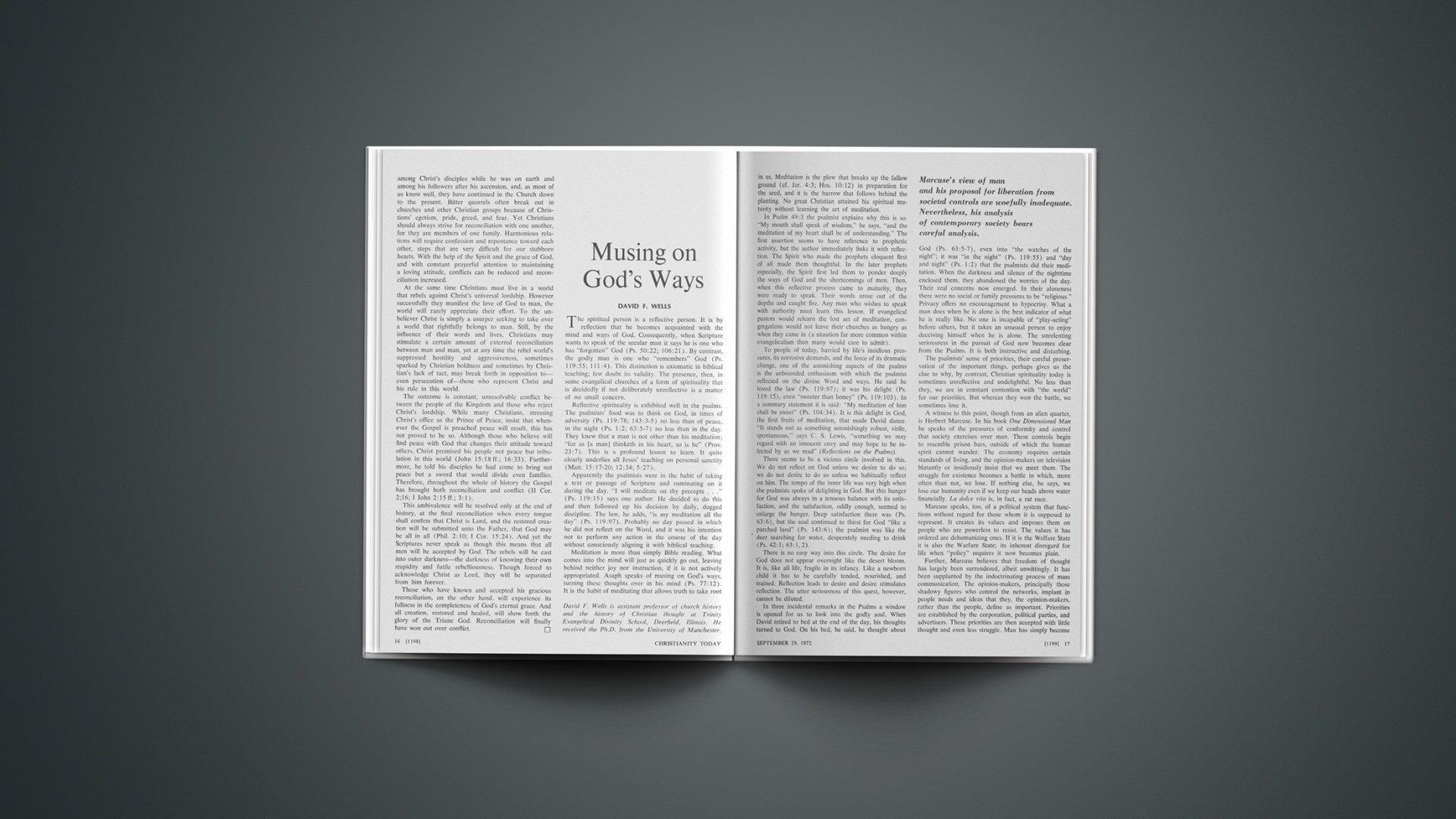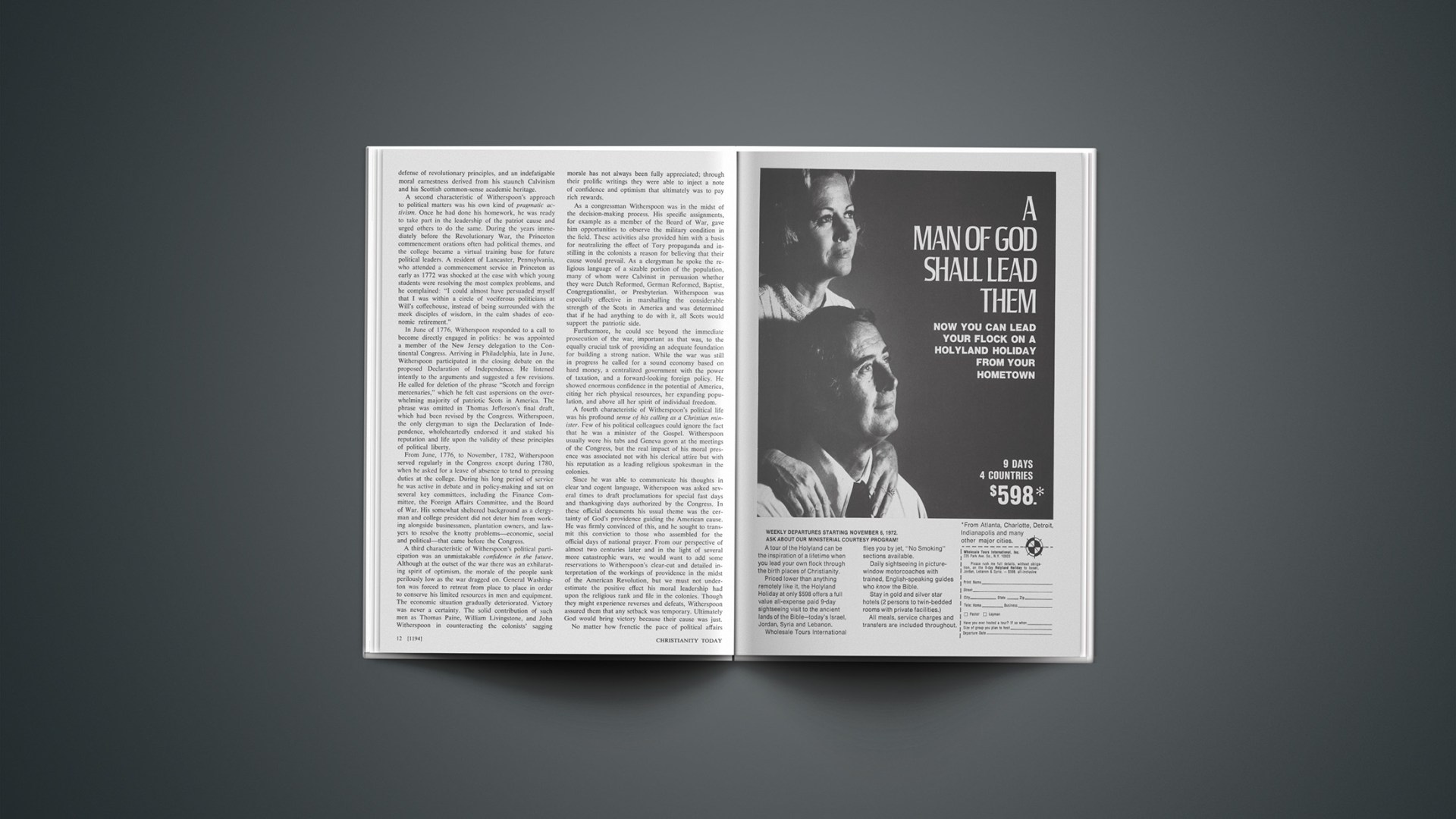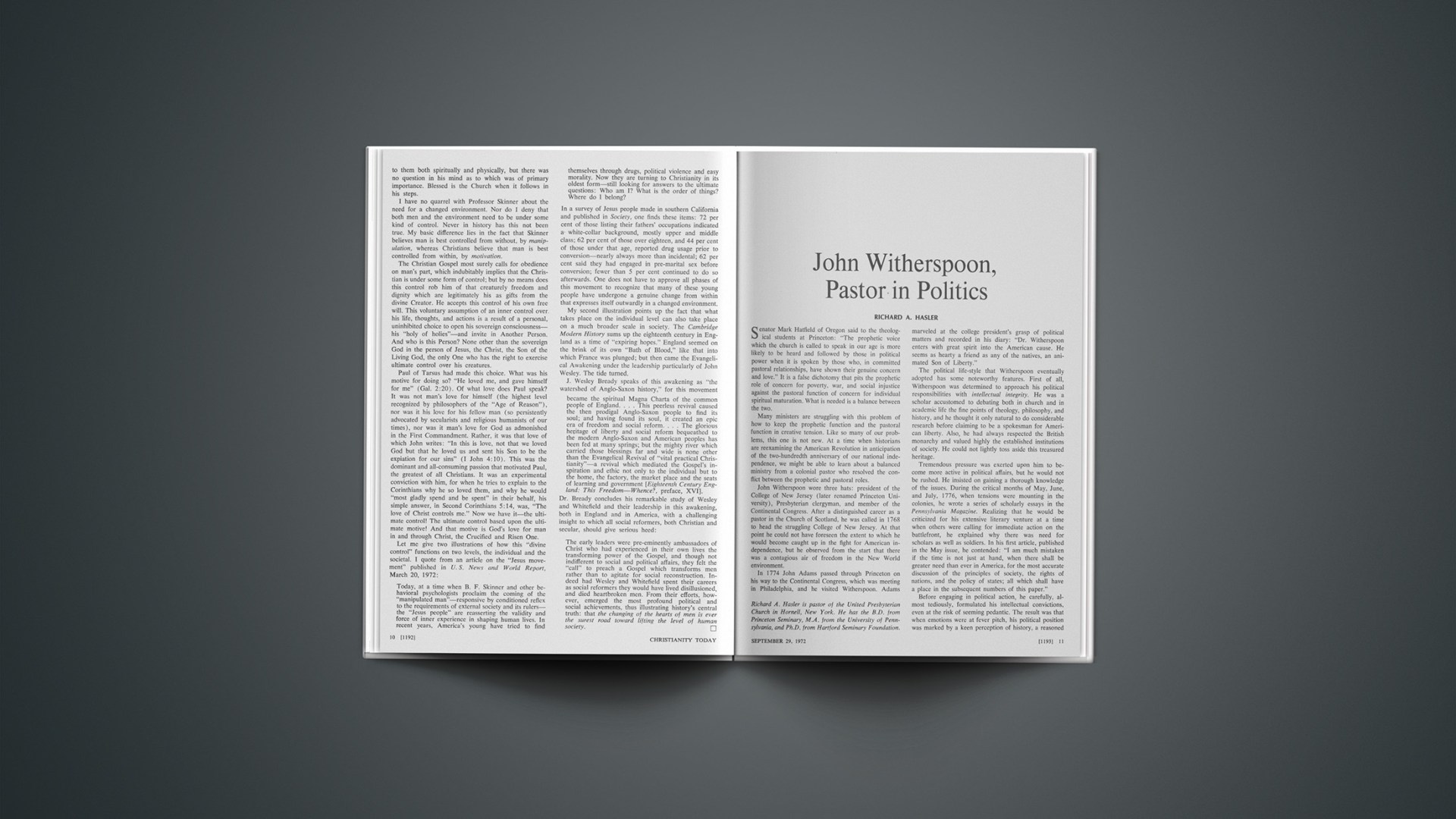NEWS
Concordia Theological Seminary in St. Louis came under official indictment this month for being at doctrinal odds with its parent denomination. Dr. Jacob A. O. Preus, president of the Lutheran Church-Missouri Synod, in a historic 160-page report, says flatly that “some professors at the Seminary hold views contrary to the established doctrinal position of the Synod.” The issues, he declares, “call for decisive action on the part of the Synod and its officers.”
The findings and recommendations, if upheld by the synod’s convention next summer, could lead to the ouster of seminary officials and faculty members.
In the interim, Preus calls on the Concordia Board of Control “to deal personally and first of all with President John Tietjen (a) as to his own confessional stance and (b) as to his failure to exercise the supervision of the doctrine of the faculty as prescribed in the synodical Handbook.” Preus also asks the board to issue an immediate directive to the faculty aimed at restoring a higher view of Scripture.
“It is apparent,” Preus said, “that a considerable number of the faculty hold a view of the Holy Scriptures that in effect erodes the authority of the canonical text. While the principal doctrines of the Christ and faith in most instances still appear to be upheld, the stage has been set for an erosion of the very fundamentals.”
The president’s report, which has been circulated throughout the 2.8-million-member denomination, traces unresolved doctrinal difficulties as far back as 1950, and identifies “the major question” as having to do with “the nature and role of the Holy Scriptures as a source of teaching in the church.”
Concordia is the largest Lutheran seminary in the world and the third largest Protestant seminary in the United States. It was founded in 1839 and now has some 800 students and fifty faculty members. With some significant exceptions, most Concordia professors and board members have opposed the three-year-long attempt of Preus to get an authoritative determination whether the traditionally conservative seminary has capitulated to theological liberalism.
The long-awaited Preus report was released early this month with special precautions taken to keep it from newsmen before Missouri Synod clergy were able to get it in the mail.
The report is a model attempt to document a doctrinal shift. It relies primarily upon lengthy tape-recorded interviews with faculty members conducted by a Preus-appointed five-member Fact Finding Committee. Substantial portions of the transcripts are reproduced (though the professors are not identified by name). A commentary by Preus is closely reasoned and dispassionate with no hint of polemic. Preus, who has been accused repeatedly of trying to conduct a “witch hunt” or “heresy trial,” includes a letter from the Fact Finding Committee which states that “at no point in any interview did any man being interviewed object that a question addressed to him was unethical in that it asked him to inform on or criticize an absent colleague.”
The Preus report was prepared to comply with a directive from the 1971 convention of the synod held in Milwaukee. The convention had called for a report to Preus and the Board for Higher Education by the Concordia Board of Control, and the synodical president was in turn instructed to report to the synod. These actions were aimed at learning what the seminary was doing to correct the situation unearthed by the Fact Finding Committee.
The Preus report quotes the full text of a “progress report” from the Board of Control. The board’s report, adopted in mid-June, said “to this date has found no false doctrine among the members of the seminary faculty.”
Two Board of Control members wrote a minority report in which they said they were “dismayed and frustrated” that “the substance of the FFC report has not been discussed in Board meetings.” A third member wrote a letter commenting on the minority report, “most of which is consistent with my own concerns and evaluations.”
Preus stated that he wants “a completed report” from the Board of Control by February 1 so that he can prepare a final report to the 1973 convention.
“The convention will then decide,” he said, “whether the action of the Seminary Board of Control is satisfactory or, if not, prescribe whatever action the convention determines proper and appropriate.” He added that “never before in the history of modern Christendom has a church body, its congregations, its lay members, its teachers, and its pastors had an opportunity for such a frank, forthright, and open discussion as to what its doctrinal stance will be.”
The dispute is being watched by many from other denominations because it represents something of a “test case” in which theological conservatives are making an unusually thorough and intensive effort to stop the dilution of key doctrines. The election of Preus to the presidency in 1969 was a surprise—he made no effort to seek the post—and he is obviously much more concerned with the outcome of the theological battle than with his own future. But the struggle has many facets, not the least of which is the imposition on Concordia of a two-year probation by the American Association of Theological Schools as a result of the current dispute. Preus was disappointed that the school did not even bother to appeal this threat to its continued accreditation.
He nonetheless remains optimistic and closes his report with a devotional “Epilog” in which he appeals to his church “to gird up our loins” and “to proclaim the Lord Jesus Christ by our words and by our deeds that through our church God’s name may be hallowed, His will may be done, and His kingdom come for the benefit of the whole Christian church and for the world itself.”
Key Celebration Of The Word Of God
Roman Catholics, burned by dropping attendance and plummeting conversions, have turned to the Bible for help. At Washington, D.C.’s Byzantine-like Shrine of the Immaculate Conception, laymen, priests, bishops, and archbishops gathered for a conference on preaching the Word of God. They want a renewal in Catholic preaching.
Organizer John Burke, a Dominican priest, called the first-ever three-day meeting a “celebration” of the power of the Word of God and pleaded for increased Bible study and Bible-centered preaching in Catholic churches. The 800 delegates met for major addresses by leading Catholic scholars and also split into eight concurrent conferences, tackling such subjects as preaching and the Bible, conversion, the priestly ministry, and ecumenism.
Key 73 director Dr. Theodore Raedeke presented to a largely interested and sympathetic audience the group’s plan for nation-wide evangelism. Burke later said he approved of Catholic involvement in Key 73 and told a press conference that the church needed more evangelism. Conference delegates urged Catholic cooperation with Key 73.
Bible-centered preaching is the key to bringing Catholics back to the church, Burke said. He cited a church that began Bible study sessions because many Catholic dropouts were attending a local Lutheran Bible study. But Burke admitted the church doesn’t have trained personnel to lead such studies. The priest in charge of the study already has changed his Sunday sermon to basic biblical messages, Burke added.
Burke also complained that the church hadn’t emphasized evangelism (“We presupposed faith—if people came to church, they believed”), hadn’t produced a Billy Graham, and hadn’t gone in for crusades. A priest, who testified before 100 of his colleagues that he was converted at the recent Billy Graham Cleveland crusade, urged them to attend Graham’s crusades and his evangelism schools to learn all they could about presenting Christ to others. Despite the emphasis on the Bible, however, much time was spent defending the conference as a much needed outcome of Vatican II. Burke denied that this conference was a reaction to the extreme liberalism it sparked. The 1962 conference led the church from liturgy to preaching, said Burke, and the Washington congress was simply trying to translate that into a preaching renewal.
Catholic seminaries and theological schools were roasted for their failure to produce “believers” who could preach. Rather than telling prospective priests how to preach, said Archbishop Fulton J. Sheen, they should emphasize “the art of being a preacher” and the ministry performed by a preacher. Sheen, one of the principal speakers, criticized priests for their lack of personal preparation for preaching and told them “we [the church] are not giving the people Christ. We have failed.” The Reverend Joseph Connors, founder of the Catholic Homiletic Society, said priests had been “poorly prepared” for preaching by the seminaries. Homiletics, he said, was too often an elective and taught by untrained men. Some schools are dropping homiletic training. (Catholic University of America, where part of the congress was held, has no preaching course at its theology school. The only such course is given by the speech and drama department, where until recently Burke was an associate professor.) Adequate academic as well as spiritual preparation is the most fundamental need in preaching renewal in the church, Connors added.
For many Catholics at the conference, the Bible emphasis was an eye-opener. Campus Crusade for Christ and its “four spiritual laws” approach was commended for its work. Burke waxed enthusiastic about the Bible for ten minutes at a press conference, but seemed slightly rocked when a reporter told him he sounded more Protestant than Catholic. Priests were urged to daily study the Bible and pray.
Sounding at times like a fundamentalist session, the meeting seemed incongruous with its site. While priests met upstairs, a store in the shrine basement was selling plastic bottles of holy water and a stick-on “Madonna of the kitchen.” Despite the plea to get back to the Bible, confessions to the priest are still in, as are prayer to the saints and Marian emphasis. Delegates urged cooperation with Key 73 and told one another Bible emphasis was one ground where Catholics and Protestants could fellowship.
The congress was Burke’s idea, he said, born of a conviction that Catholics were tired of political and social harangues from the pulpit and wanted more Bible preaching. Convinced of the need, he quit his university teaching post to become executive director of the newly-formed Word of God Institute operating from an office at the university. The institute will promote better preaching with workshops and seminars around the country. Burke hopes that similar regional or diocesan congresses will be held in the future, though there are no plans at present to make the national congress an annual affair. Delegates attended the sessions from all dioceses in the fifty states as well as from Canada.
BARRIE DOYLE



